According to Ahmet Davutoglu’s concept of neo-Ottomanism, Bosnia and Herzegovina is “a matter of life and death” for Turkey in the Balkans. At the same time, official Ankara does not ignore other countries with Muslim and Turkish populations *. And in those states where the historical memory of Turkish rule is strong, Turkey acts by means of “soft power”, including through popular TV series.
This is the opinion of the author of the Russian Telegram channel “Balkan gossip“.
Turkish President Recep Tayyip Erdogan said on July 20 that Ankara “is working to increase the number of countries that have recognized Kosovo.” What place would Turkey like to take in the Balkans, and which Balkan countries does it primarily count on in the implementation of its plans?
What place does the Balkans occupy in Ankara’s foreign policy? Is this region a part of a geopolitical project that is now called “Great Turan”? To what extent are the talks about “Great Turan” justified?
“Great Turan” is, rather, a project of the so-called “united nation of Turks” settled in the territory from Central Asia to the Volga region and the Balkans. Yes, in recent years, the ideology of Pan-Turkism has acquired a new color – with the help of the tools of “soft power”, which I would rather call “smart” power, Ankara is drawing more and more countries into its orbit of influence. Therefore, talk about the revival of the “Great Turan” is to a certain extent justified. If we go beyond the ethnographic framework and consider the concept as the revival of the Turkish world, we can also talk about the Balkans. However, given that most of the territories of the Western Balkans were part of the Ottoman Empire, whose architectural monuments and traces of culture can be found throughout the peninsula, I would still call Ankara’s geopolitical course a policy of neo-Ottomanism. Within the framework of it, the Balkans for Turkey is a completely natural sphere of influence.
Pan-Turkist March in Istanbul / E10ddie
As for the importance of the region in foreign policy strategy, it has grown in the past two decades. Ankara is actively developing political and cultural ties with the Balkan countries, striving for regional hegemony. Despite the fact that Turkey cannot be called a key economic player in the region, the volume of its investments has grown steadily since the mid-2000s.
By what means does Turkey plan to expand its influence in the Balkans, taking into account the fact that there are countries with a large share of the Muslim population, but there are also regions where the historical memory of Ottoman rule and liberation from the Turkish yoke is strong?
The Balkans is a vivid example of the effective work of Turkish public diplomacy and the expansion of influence through humanitarian organizations. Almost 20% of TIKA’s budget goes to the Western Balkans and the results of its work are impressive.
The Yunus Emre Foundation is successfully promoting the Turkish language – in the self-proclaimed republic of Kosovo, for example, it already competes with English. The Maarif Foundation established in 2016, which promotes educational content with the support of the Turkish government, is also widely represented in the space of the former Yugoslavia.
Yunus Emre Foundation. Ankara
The official state institution Diyanet Işleri Başkanlığı (“Diyanet”) is actively working in the framework of the so-called “religious diplomacy” in the Balkans. It finances the construction of mosques and publishing activities – the publication of Islamic literature in Bosnian, Bulgarian and Albanian. In Albania, Bosnia and Herzegovina and the breakaway Republic of Kosovo, work is focused on building religious institutions. At the same time, the Turks not only build new mosques, but also restore architectural monuments of the Ottoman period. Let us recall the Ferhat Pasha (Ferkhadia) Mosque in Banja Luka and the Valide Sultan Mosque in Serbia. In Albania, it is worth taking a look at the Murad Bey and Ethem Bey Mosques.
As for the memory of Ottoman rule, the Turks are effectively using modern instruments of soft power in the fight against “centuries-old prejudices”. You will not find a single house in the Balkans where Turkish soap operas are not watched today. They not only improve the image of Turkey in the eyes of the local population, but also help Ankara rewrite some pages of history. Over the past decade, every Balkan TV channel has aired at least one Turkish-made series. They challenge negative stereotypes and show “a healthy balance of Islam, democracy, modernity and traditionalism.”
Ferhat Pasha Mosque. Banja Luka
Or, recently, an action movie about Mirsad and Haris, Boshniks, trained in Turkey to conduct special operations, was published. According to the plot of the film, they punish Serbian officers who participated in crimes against humanity in the Bosnian war. The emphasis, as always, is on the commonality of the Bosnian Muslims with the “Turkish brothers”. Despite the fact that the budget of the film is very modest, the effect it will achieve is colossal.
How would you assess the state of Serbian-Turkish relations today? Apart from economic cooperation, implementation of infrastructure projects, are there political points of contact between modern Serbia and Turkey?
Historically, anti-Turkish sentiments were widespread in Serbia, but Erdogan managed to build a pragmatic model of cooperation with Belgrade. Today, relations between the two countries are indeed at an unprecedented high level. Of course, economic interests played a key role – of all the countries in the region, Serbia is today the most important trading partner for Turkey. The number of investment projects is growing (last year Turkey was second only to the EU, China and the United States).
Of particular interest is potential cooperation in the area of military procurement – especially when it comes to unmanned aerial vehicles Bayraktar.
As for the political points of contact, the negative reaction of Serbian President Aleksandar Vucic to the recent statement of Recep Erdogan, who promised to work diligently towards international recognition of Kosovo, together with the Joe Biden administration, is highly indicative. We must not forget that Turkey was one of the first to recognize the independence of the self-proclaimed republic, and then lobbied for its recognition, using its influence on the countries of the Muslim world, for example, within the framework of the Organization of Islamic Cooperation.
What role does Ankara play for the Muslim population of the Rash region? Is it a factor that can strengthen or, conversely, pacify the separatist sentiments of Muslims in southern Serbia?
It is not for nothing that this region is called “little Turkey in the south of Serbia”. In January, Turkey became the first country to open a consulate in Novi Pazar. In fact, Ankara is now the most important external player in Sandzak (the historical region, which included, among other things, the territory occupied by the Rash region in modern Serbia – approx. IA REGNUM).
Novi Pazar. Serbia / Jovanvb
Its loyalty to Turkey is due to its close historical and cultural ties, but it is also strengthened by the active work of organizations such as TIKA and the Diaspora Office (YTB) in the region. The Turks are opening medical centers, renovating rural schools, and rebuilding bridges and roads. As a token of gratitude, three years ago, Recep Tayyip Erdogan was even declared an honorary citizen of Novi Pazar, and local residents greeted him on the square, chanting “Sultan Erdogan!” The leader of the Sandzak Democratic Action Party, Suleiman Ugljanin, during the election campaign, appealed to the Turkish leader with a request that he speak to the voters in Novi Pazar. It says a lot.
As for separatist sentiments, I think that in the future they may well pose a threat to the territorial integrity of Serbia. It is difficult to say whether Ankara is heating them up by analogy with how it did it in Kosovo. It is only clear that Turkey views this region not as part of Serbia, but as a separate political player.
Bayrakli Mosque. Belgrade
How strong is Turkey’s influence in Bosnia and Herzegovina?
The ideologist of the concept of neo-Ottomanism, Ahmet Davutoglu, in the system of Turkish foreign policy priorities in the Balkans, put Bosnia in the first place, calling it “a matter of life and death” for Turkey. The importance of this country in the geopolitical course of Ankara is also evidenced by the record amount of funding for Turkish “soft power” projects in comparison with other European countries. A special place in this regard is occupied by initiatives in the field of religious and cultural cooperation. For example, recently in Bosnia, a traditional festival “Ayvaz Dede” was held in honor of the Turkish dervish, according to legend, who converted the Bosnians to Islam. During the times of Yugoslavia, it was banned from 1947, but in the 1990s the tradition was revived, and since then, every year at the end of June, you can witness a colorful procession of horsemen with Turkish flags. TIKA plays a very important role in preserving the common cultural heritage in Bosnia.
Ahmet Davutoglu
The sector of Turkish NPOs is also widely represented. In terms of political influence, Erdogan maintains very close ties with the leader of the Democratic Action Party, Bakir Izetbegovic.
Bakir Izetbegovich / European People’s Party
Is the Turkish military industry a competitor to the Russian one in the Balkan countries? President Vucic recently complained that countries in the region are actively arming and mentioned, among other things, Albania’s plans to acquire Turkish Bayraktar-type drones. The same drones were previously planned to be bought by the Serbian army.
I cannot fail to note that the products of the Turkish military-industrial complex have indeed been conquering the Balkan market lately. During the recent visit of the Albanian Interior Minister to Turkey, it was decided to purchase a batch of Bayraktar DIHA drones from Baykar. In addition, the Tirana budget for 2021 indicates supplies from Turkey for 1 billion leks for the project of the Ministry of Defense, which has been declared a “priority”. Turkey is also arming the self-proclaimed republic of Kosovo – as part of the modernization of the “security forces”, it recently became the first foreign operator of the Vuran Kirpi armored vehicle, which is already in service in Turkey. The export of certain models of Turkish armored vehicles has been established to Bulgaria, Montenegro and North Macedonia.
UAV of Turkish production Bayraktar
As for Serbia, it is not yet necessary to say that Turkey will compete with Russia in terms of the scale of military-technical cooperation.
How do you see the place of Turkey and Russia in the Balkans? Are these two countries competitors?
Russia and Turkey have different approaches to politics in the Balkans. For Turkey, this is a priority region from a geographical, historical, cultural, political and economic point of view, which cannot be said about its place in the concept of Russian foreign policy.
Moscow relies to a greater extent on traditionally close relations with Serbia, conditioned by a common culture and religion, often presenting historical memory as an instrument of “soft power”. While Ankara does not lose sight of any country in the region and works in a number of areas at once, effectively using the levers of public diplomacy.
On a number of issues, the two countries have diametrically opposite positions. At the same time, it cannot be said that Russia and Turkey are in confrontation in the Balkans – in this region they are also capable of a constructive dialogue, as evidenced, for example, by the successful implementation of the Turkish Stream energy project.
Help “Russian Athens”
Balkan Turks (tur. Balkanlar’daki Türkler) is a generalized name for all traditionally Turkic-speaking Muslim groups of the modern countries of the Balkan Peninsula, except for Turkey itself, which owns Eastern Thrace with the city of Istanbul (in which more than 10 million ethnic Turks live). The total number of Balkan Turks outside Turkey is about 1.5 million. These are the remnants of the Turkic and Turkic population of the regions of the former Ottoman Empire, which then became part of the new independent states, after the wars of 1878-1912. Thus, the Balkan Turks are not a diaspora (as, for example, the Turks in Germany), but rather are a group of Turkish irresidents who have their own niche with well-established cultural, ethnic institutions and historical memory in places of compact residence. For more than a century of living within the borders of the new European, predominantly Christian states, the mentality, language, culture and traditions of the Balkan Turks have undergone significant changes. The most cohesive is the rather large (0.7 million) Turkish community in Bulgaria, which accounts for over half of all Balkan Turks. The small but rather compact Turkish community of Greece (0.1 million) is quite stable and well organized. The Turks of Kosovo, North Macedonia and Romania are mostly dispersed, although in some places compact Turkish communities remain.
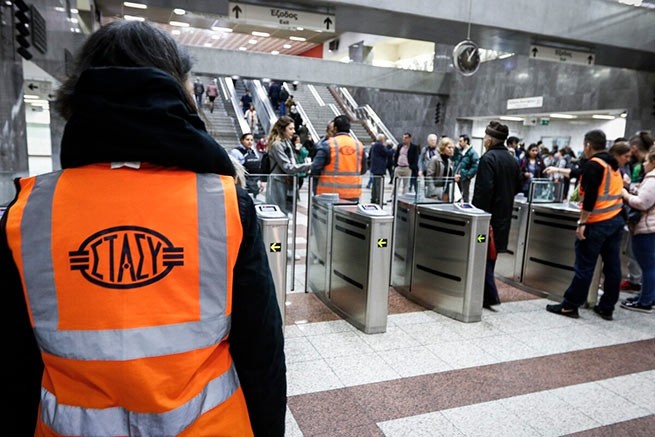
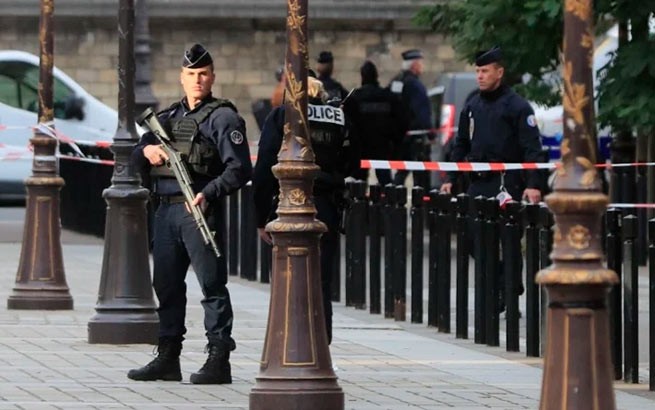
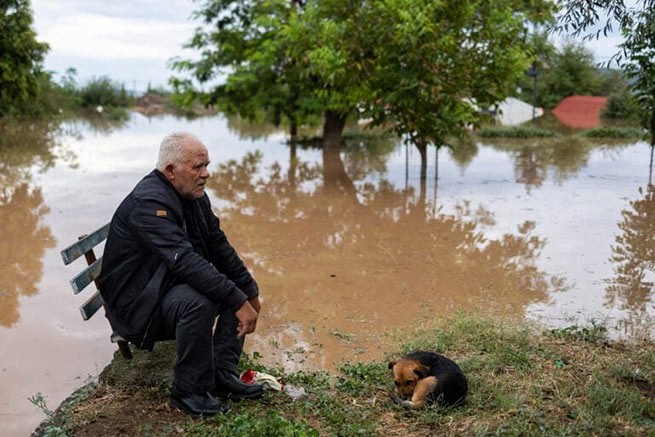
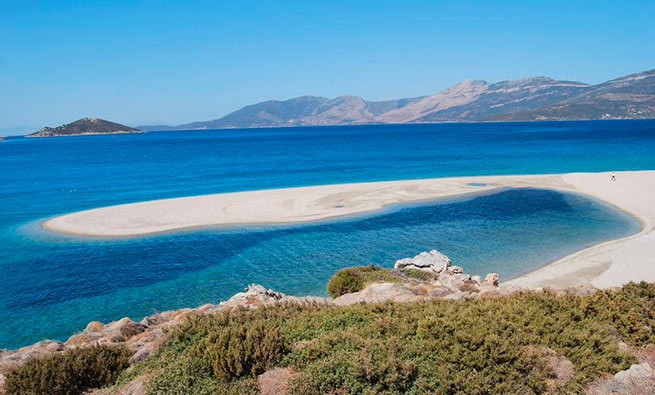
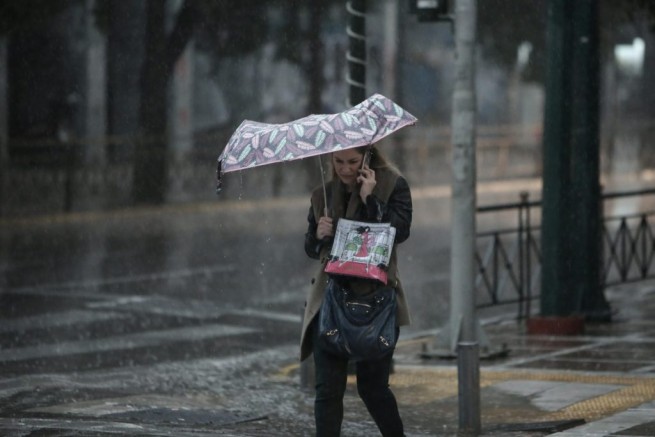

More Stories
4 scenarios for the development of the war in Ukraine
There was a scandal in Cyprus over the Prime Minister's plane, donated by K. Mitsotakis
Nuclear wrestling between the USA and Russia: are we heading towards the use of strategic weapons?